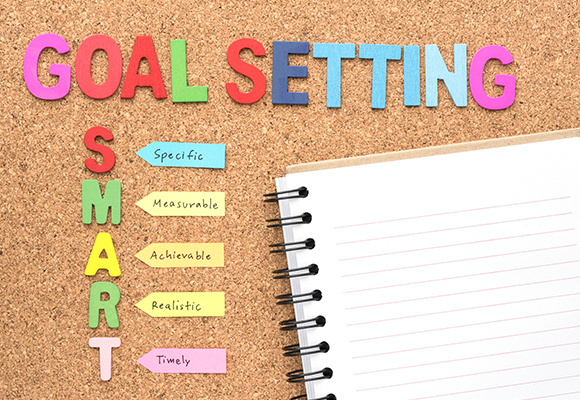- Written by Ellen Barker Dunagan
- Published:

Setting career goals is a smart move. This healthy career management practice will advance your professional success and put you on the path to greater fulfillment. Goal setting is motivational too; it incentivizes us to courageously stretch ourselves, accomplish something new, and build a roadmap for where we want to take our careers.
One critical component to setting a career goal – any goal, for that matter – is to make sure you can achieve it and it is relevant to your success. You may have heard of the S.M.A.R.T. goal-setting method, which stands for Specific, Measurable, Achievable, Relevant, and Timely.
Here are five ways you can set S.M.A.R.T. career goals, and enjoy greater professional fulfillment:
- Be Specific. For example, if your goal is to “find a job as quickly as possible” you probably need a lot more detail. Chances are you don’t want just any job, so make your intention specific: “I want a job leading a team for a non-profit where I am contributing to a mission I believe in.”
- Make it Measurable: Let’s stick with the job-hunting scenario. The numbers of organizations you have targeted, resumes you have submitted, people you have networked with, and interviews you have won are all good examples of metrics that will help you assess your input vs. output. If you find you have not created enough volume of opportunities – or that you have not been tracking your job search activities well enough to even understand your ROI – then it’s time to reflect on that data and capture it going forward so you can better measure against your goal.
- Ask: Is your goal Achievable? This is perhaps the most powerful question of all. Can you achieve the goal you are setting for yourself? If you are not experiencing a high level of success, it could be that your goal was unattainable to begin with. Let’s say you aim to be promoted to a management position within one year. What are the specific actions will you take to achieve this goal? Long-term goals often need to be broken down into smaller parts so we can visualize how to get there. Quick tip: Consider balancing long-term career goals with reasonable short-term goals that will provide a quicker reward and keep you motivated.
- Make your career goals Relevant. Put another way, “What will achieving my goal do for me?” If you have your eye on that management position, your response to this introspective question might be “so I can gain important leadership skills and learn to run a team, since my long-term career goal is to become a CFO.” Your answer might also reveal short-term actions you can take to reach this goal, such as signing up for leadership training, finding a mentor, or networking with key individuals at your organization who can support you along the way.
- Check: Are your career goals Timely? Give yourself a due date. If your goal is to “get a job leading a team at a non-profit where I am contributing to a mission I believe in,” decide by when you will have this job. Be realistic here, too – 90 days might be your ideal timeline, but six months might be a better bet. The same is true for our long-term goal example of being promoted to a management position. Ensuring you have dates by which to find a mentor or enroll in leadership training will make you more mindful of moving this goal forward.
Goal setting is key to career success. Part of the process is ensuring your goals are S.M.A.R.T. – and therefore worth spending your time on.
So take a look at your career goals. How S.M.A.R.T. are they?



